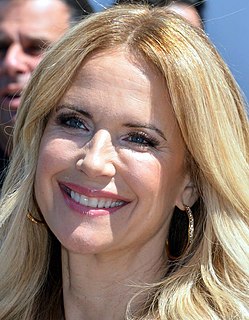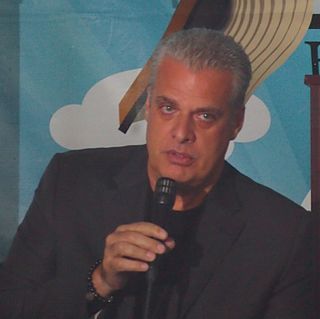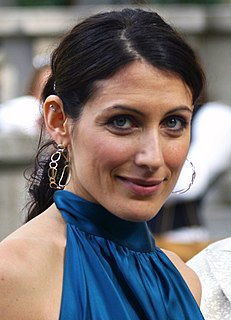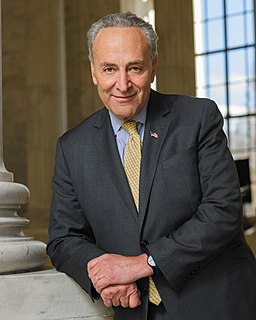A Quote by Kelly Preston
I strongly believe as a mother, as does my husband, that there are certain contributing factors that lead to autism and some of it is very much the chemicals in our environment and in our food.
Related Quotes
... we find ourselves facing a rising tide of biologically active, synthetic organic chemicals. Some tinker with our hormones. Some attach themselves to our chromosomes and trigger mutations. Some cripple the immune system. Some light up our genes and so enhance the production of certain enzymes. If we could metabolize these chemicals into completely benign breakdown products and excrete them, they would pose less of a hazard. Instead, a good many of them accumulate.
Our environment, the world in which we live and work, is a mirror of our attitude and expectations. If we feel that our environment could stand some improvement, we can bring about that change for the better by improving our attitude. The world plays no favorites. It's impersonal. It doesn't care who succeeds and who fails. Nor does it care if we change. Our attitude toward life doesn't affect the world and the people in it nearly as much as it affects us.
I think one of the problems with the definition of autism is we keep expanding it. It started as "early infantile autism", and then it became "autism", and now it's "autism spectrum disorder". I'm not opposed to that from the standpoint of trying to broaden our vistas, and so forth. But from a research point of view, the term autism is lost in specificity.
I believe that the environment at home has been fairly secular and liberal. And most times, it comes from my mother. Our culture is very strong, but at the same time, she's a very free-spirited person. She's an artiste, and that's the environment I grew up in, where films and music were respected and meditated upon.
Cooking is a holistic process of planning, preparing, dining and sharing food. I place food at the center of our humanity, as it nourishes not only our physical bodies but also our emotional and spiritual lives. Food is truly a cultural phenomenon that informs our traditions and our relationship with the earth. I genuinely believe that food connects us all.
What does it mean to a successful woman today? Does it mean you have to be a mother? If you are a mother, does it mean you have to be a mother with a husband? If you don't have a husband, what is the role that the man plays? I think there are a lot of confusing things that we're all really still sorting out.
I have a fairly strict definition of early infantile autism. That is not to say that people who don't meet that classic description don't have autism, but we might do well to narrow our definitions, and our samples, down to groups that are very similar, because I think you're more likely to find the cause.



































